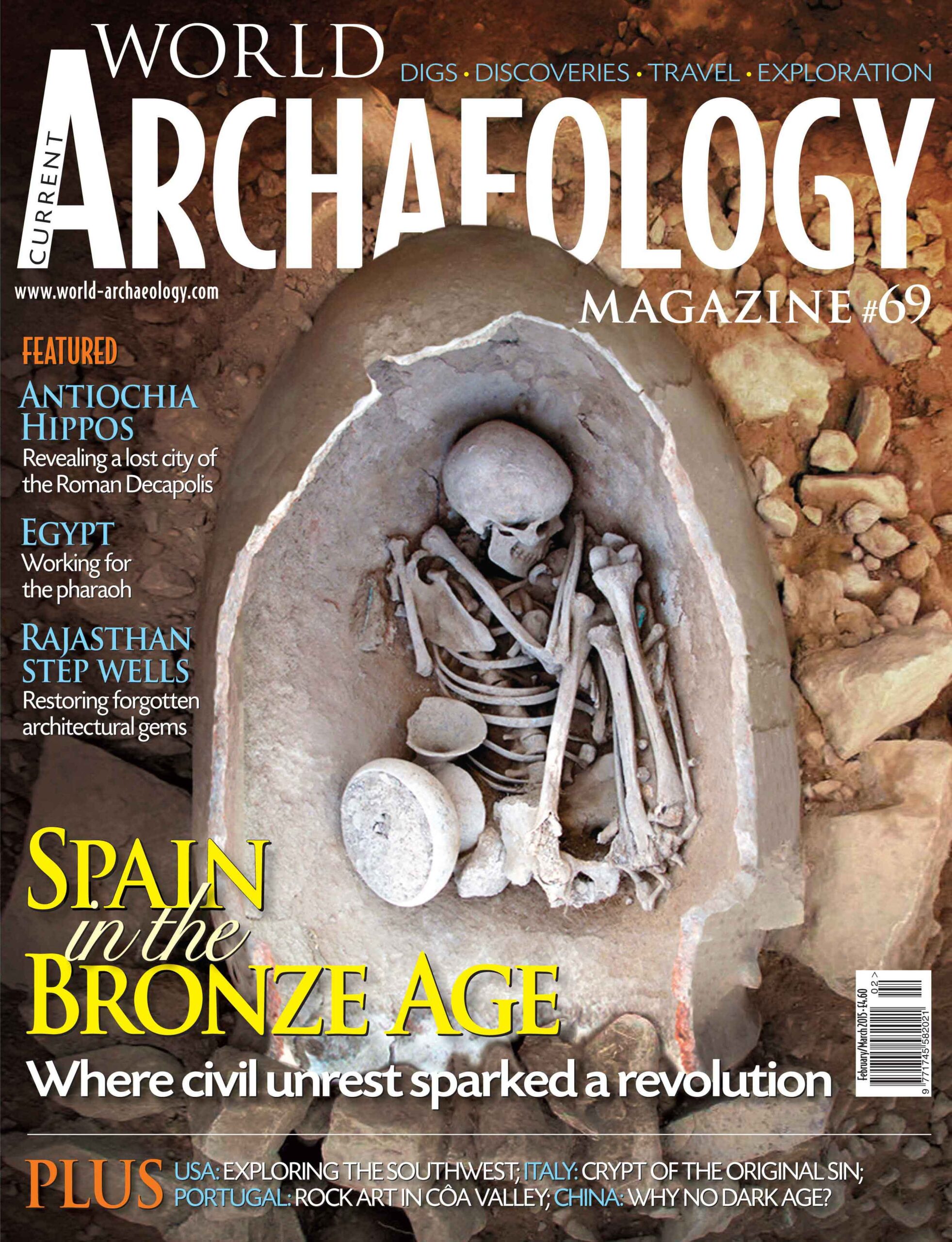Excavation at a Bronze Age hilltop settlement in south-east Spain has uncovered the burial of an elite couple dating to about 1650 BC. The archaeological record shows that just a century later the world as they had known it was gone. Civil unrest had overturned the old order, and all traces of this little-known Argaric culture disappeared almost overnight. Could the great divide between the rich and the poor have sparked a rebellion?
On the other side of the world, a fragment of a wooden canoe with a swimming turtle carved on its bow has provided new evidence of when and how the Polynesian islands were colonised.
Antiochia Hippos was a member of the Roman Decapolis, the Greco-Roman cities on the eastern border of the Roman Empire. But it was deserted following a catastrophic earthquake in AD 749, and its abandoned ruins were buried by time. Now, after 15 years of excavation, archaeologists in Israel are discovering the riches that this capital of the region once enjoyed.
The step wells of Rajasthan are long-neglected monumental masterpieces, some dating back centuries. They combine stunning architectural detail with a practical purpose, yet many are falling into ruin. A new project is under way to restore these watering places to their former glory.
Next, we go to Deir el-Medina, the village of the workers who built the intricately carved tombs in the Valley of the Kings. Popular perception is that these poor individuals endured a brief life of gruelling hardship, and that they were a cheap, readily replaceable labour force. But now research is challenging these notions, and recent evidence suggests the existence of Egypt’s first government-sponsored healthcare system.
Finally, Andrew Selkirk, inspired by his recent visit to China, is delving into Chinese history. Why, he asks, was there no Chinese ‘Dark Age’?

